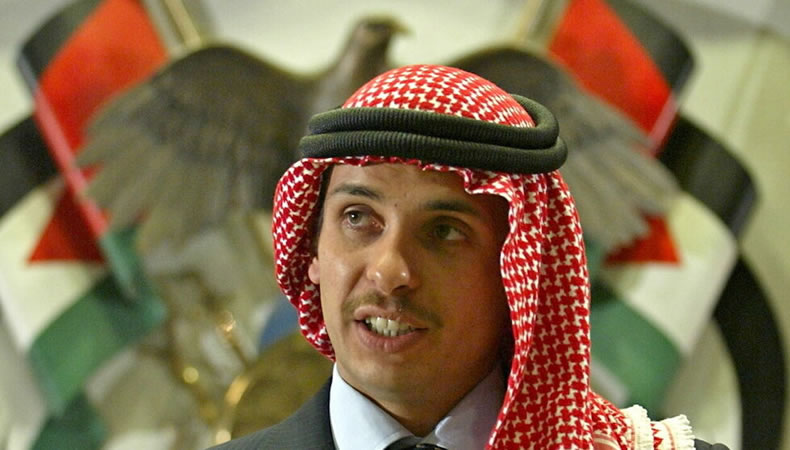Why did Jordan’s Prince Hamzah abdicate his position as Crown Prince?


Hamzah bin Hussein is the half-brother of current King Abdullah II and the late King Hussein’s son. Following his father’s death in 1999, he was named Crown Prince. Hamzah was deposed by King Abdullah II in 2004, who named his son as the successor to the throne. Hamzah declared he was “renouncing the title of prince” in a message released on Twitter, a month after a royal court statement indicated he had apologized to the king for last year’s failed coup and sworn fealty to him.
After releasing a film exposing the repression of dissidents and widespread corruption among the country’s elites, the former crown prince was placed under house arrest a year ago. “After witnessing what I have witnessed over the past years, I have come to the conclusion that my personal convictions and the values instilled in me by my father… are not in line with the approaches, trends, or modern methods of our institutions,” reads a signed statement shared on his Twitter on Sunday. “I see no other option but to transcend and relinquish the title of prince in the question of honesty to God and conscience.” Over the course of my life, I had the wonderful honor of serving my beautiful nation and my loving people.
Related Posts
Hands from another country
Jordanian authorities claim the former crown prince colluded with foreign actors, despite Prime Minister Bisher al-claims Khasawneh’s that hundreds of thousands of fake social media accounts from neighboring Arab countries are attempting to destabilize the official narrative and the state’s stability.
The Prime Minister further said that the most recent intrigue’s political goal was to weaken King Abdullah II, whom he termed as a “stumbling hurdle” to any intentions to pervert the Palestinian problem. In the Hashemite monarchy, the state’s story has gone largely uncontested, but it has to be seen if it is believed. Critics have questioned the state narrative’s contradictions, which say Hamza’s online behavior and public appearances constituted a threat to the royal family’s stability on the one hand, and then assert Hamza’s participation in a plot involving hostile external players on the other.
Details about how the former prince’s position after being released from house arrest has yet to be revealed, which is all the more important considering the intense scrutiny Hamzah faced during a secret trial in July 2021 that claimed to have uncovered a scheme to promote Hamzah as king.
What exactly is a coup?
Jordan’s Armed Forces urged the former crown prince to stop acting against “security and stability” in April 2021. Hamzah, who was under house arrest at the time, tweeted that he would defy instructions not to use Twitter but would not seek escalation. Following Prince Hassan bin Talal’s mediation, the former crown prince signed a letter confirming his devotion to King Abdullah and Hamzah. “In light of the events of the last two days,” he says, “I place myself in the hands of the king, following in the footsteps of my forebears.”
Later, King Abdullah II stated that the problem began during a visit by Yousef Huneiti, Chairman of the Joint Chiefs of Staff of the Jordanian Armed Forces, who advised the former crown prince not to attend gatherings organized by government opponents.
General Huneiti can be heard chastising the crown prince for attending subversive events and urging that he stop tweeting in a leaked audio tape.
Hamzah can be heard shouting for the general’s automobile before criticizing his statements as impolite. “In the name of my nation, you’re directing me what to do and who to meet?” Did you come here to make a threat against me? “You’re telling me not to go out and mingle with people?” Hamzah inquires. General Huneiti is heard on several occasions denying that this was his intention. “Do I bear responsibility for the state’s mismanagement?” “Am I to blame for the ongoing failures?” Hamzah asks.
In a widely circulated letter of apology issued by the Jordanian News Agency nearly a month later, Hamzah would retract his position. “Throughout my life, I had the wonderful honor of serving my beloved nation and dear people in this way,” he wrote. “I shall be committed to our beloved Jordan as long as I live.” The country’s prosecutor-general also prohibited reporting on the purported scheme.











